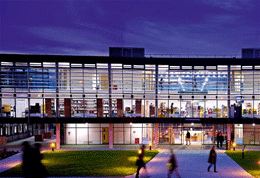10th Feb 2016 5:00pm-6:30pm
M2 Boardroom Grand Parade

Kelly Duggan: Envisioning the Future Village: The role of digital technology in supporting imagination and collaborative creativity within neighbourhood planning.
The British government has expressed a desire to engage its citizens in a more inclusive participatory democracy, yet few changes to legislation reflect these intentions more so than those made to the under the Localism Act (2011), particularly by way of Neighbourhood Planning. Under these changes residents are now invited to create a vision for the future of their community, one which, if successful at referendum, will carry real legal weight in shaping the policies future developers have to adhere to. However, clarity on what a vision is and how a community create one collectively, is neither understood, nor facilitated clearly by existing available resources. It is also suggested that under the current system, this process is not as democratic as it claims to be, with members of the community lacking not only the representation, but the capacity or willingness to contribute.This thesis seeks to understand whether these concerns can be alleviated by the use of digital tools, by offering something new in stimulating imagination and creativity, and in engaging those who are currently unrepresented. Particular focus is on mobile devices which are growing in their ubiquity, especially amongst younger generations who are identified as a disenfranchised group.
Through a Constructive Design Research approach, a new ‘digitally supported’ envisioning process has been developed and utilised within multiple envisioning workshops. By observing participant interaction with this process, empirical data has been generated and analysed, leading to incremental changes to the framework, which were then re-tested, resulting in the the Collaborative Envisioning Framework. The contribution is this framework, which provides a practical tool to be used by Community Planning groups when seeking to engage young people in community planning, as well as a new methodology for assisting young and older people in creating a visions together. It also opens up questions surrounding its appropriateness to use with other stakeholders and disenfranchised groups in the community. The research adds to the discussion surrounding the practical application and 'added value' of envisioning in the realm of community planning, as well as offering insights into the developing use of digital technologies, specifically tablet supported apps ‘Ageing Booth’ and ‘Morfo’, and the gaming platform Minecraft, to stimulate ideation via empathic imagination, and in facilitating communication between stakeholders.